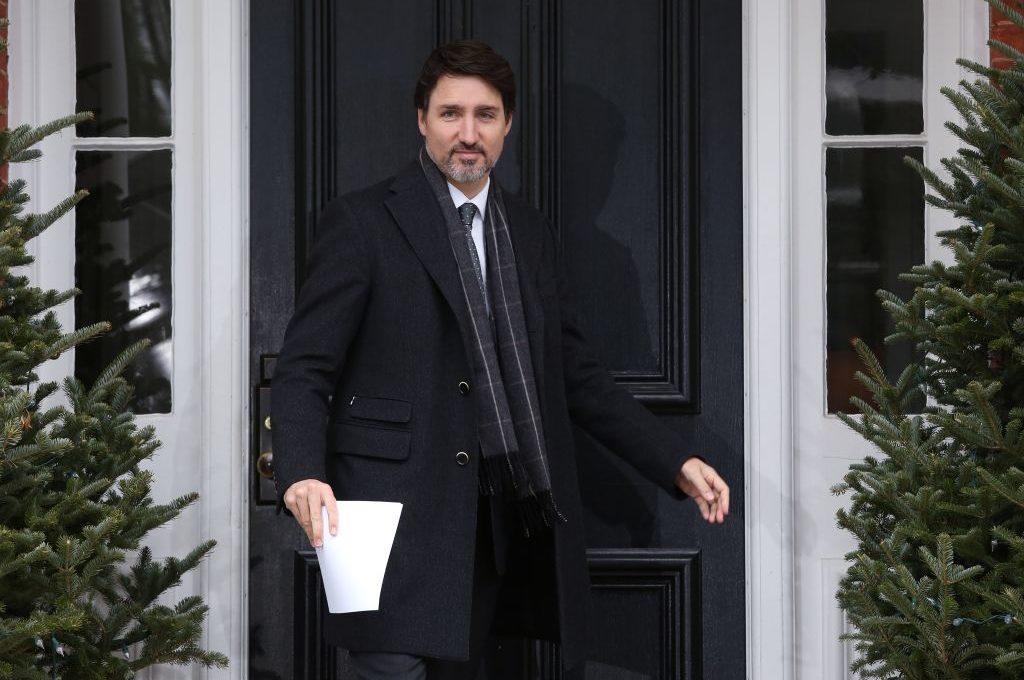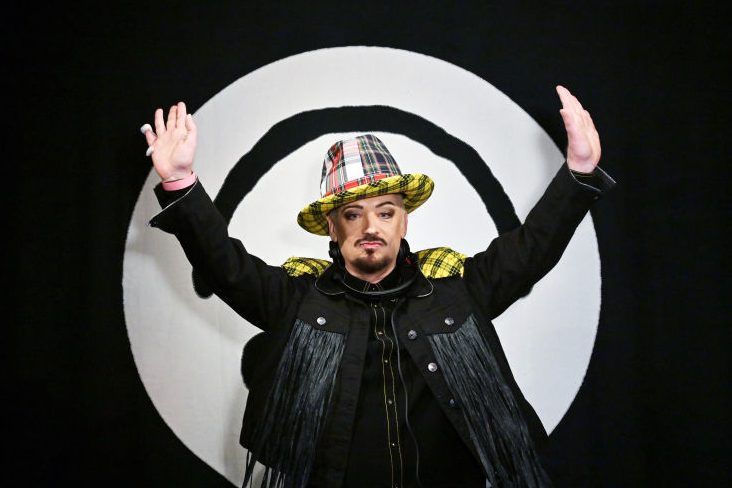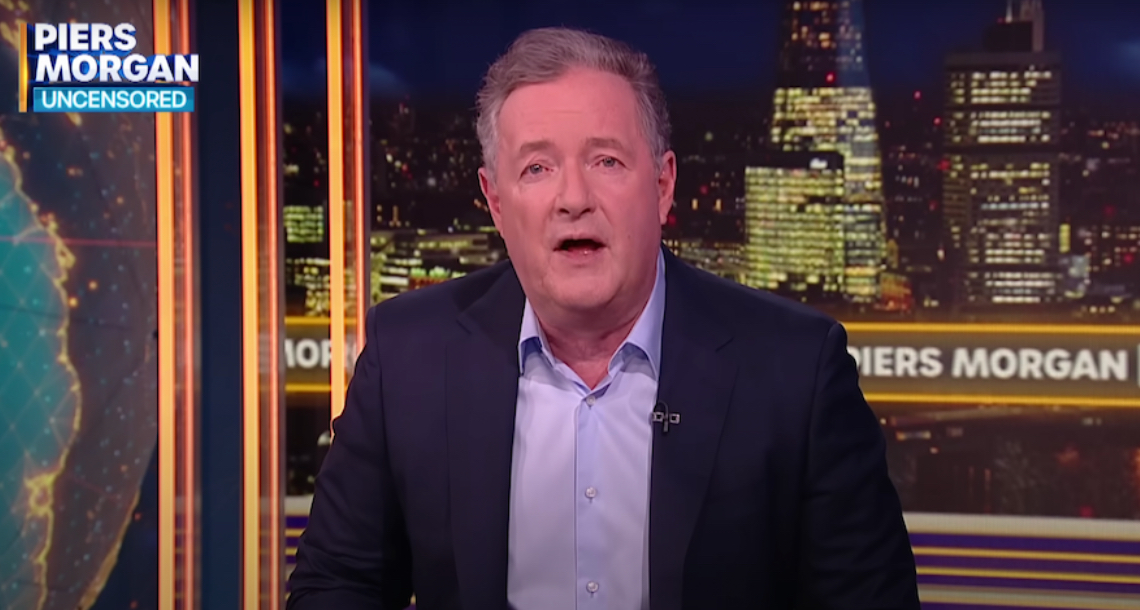While Americans spent last week panicking about the state of their democracy, north of the border we were having a collective meltdown about a teenage writer who dared to praise Joe Rogan. Here in Canada, we are expected only to expose ourselves to and support the positions and politics and ideologies professed by the CBC and CanLit writers whose writing careers consist of canceling writers who have actual writing careers. The notion that anyone might express interest in different points of view, that don’t fit within the narrow confines of woke politics, is effectively blasphemy.
Speaking of blasphemy, on October 16, a French teacher named Samuel Paty was beheaded after showing Charlie Hebdo cartoons of the Prophet Mohammed to his students. Paty was engaging his students in a discussion of free speech, and apparently even offered his Muslim pupils the opportunity to leave the classroom lest they be offended by the caricatures shown. To Islamic extremists such as the young man who murdered Paty, blaspheming against Mohammed is a crime worthy of death; even those who don’t subscribe to their faith should be exterminated
A week later, two people were killed in Nice after a man entered the Notre-Dame basilica and attacked three people with a knife. One of the victims was a 60-year-old woman whose throat was cut so deeply it was considered a decapitation by France’s top antiterrorism prosecutor. Chief suspect, Tunisian Ibrahim Issaoui, arrived in France via Italy, and is in critical condition after being shot by police. French authorities and President Macron branded it yet another Islamist terrorist attack.
You might think our progressive political representatives would speak out on behalf of free speech in the face of such horrific violence. And while Prime Minister Justin Trudeau of Canada did label the attacks ‘heinous, criminal acts, unjustifiable by any circumstance and an affront to all of our values’, he declined to take a strong position in favor of free speech. When asked during a press conference to respond to a question about the right to show a caricature of Mohammed, Trudeau said that while freedom of expression is all fine and good, there must be limits. It’s an odd way to defend freedom of expression: adding a caveat that places responsibility on those causing ‘offense’, not those who violently silence opinions they don’t like. But indeed this is what Canada has come to.
‘We owe it to ourselves to act with respect for others and to seek not to arbitrarily or unnecessarily injure those with whom we are sharing a society and a planet,’ Trudeau argued. ‘In a pluralistic, diverse and respectful society like ours, we must be aware of the impact of our words, of our actions on others, particularly these communities and populations who still experience enormous discrimination.’
This caveat has become a mantra for progressive Canadians who insist ‘freedom of speech does not mean freedom from consequences’ — a decidedly eerie phrase in light of the attacks in France.
We live in a time wherein words like ‘violence’, ‘hate’ and ‘harm’ are used in the abstract, referring to feelings and possibilities rather than literal reality. So when Trudeau talks about not ‘seek[ing] to dehumanize or deliberately hurt’, he is talking about the ‘hurt’ of feeling offended. The ‘hurt’, in this case, experienced by those who believe non-believers deserve to be killed.
But what is more ‘dehumanizing’ than killing a human — literally?
This sentimentality extends far beyond Islamic extremism. ‘Kill TERFs’ is a statement thrown around with shocking casualness online, aimed at women who question gender-identity ideology. A growing number of people believe violence against their political adversaries is acceptable. Many justified the violence of Black Lives Matter protests by claiming it was perpetrated on behalf of the oppressed. If we decide that ‘offense’ or ‘hurt feelings’ are as dangerous as physical violence, we end up afraid to challenge or criticize harmful ideas and practices.
The notion that it is of upmost importance to avoid ‘hurt feelings’ — to be so very kind and inclusive and open-minded that we cannot contest ideas and practices that in fact do cause real harm to others is precisely what has led Canadians to uncritically adopt SOGI, a guide which instructs teachers in British Columbia and Alberta on how to teach children about gender identity ideology.
‘Everyone has a sexual orientation and gender identity,’ the BC government’s website announces, as though this has already been accepted as indisputable fact. This program is framed as a means to fight discrimination and bullying, making SOGI difficult to challenge on the surface. Of course we don’t want gay and lesbian students to be targeted at school. But if you look closely at the SOGI teaching materials, you’ll find students are being taught much more than just that:
‘When babies are born, doctors and parents usually decide if the baby is a boy or girl. However, not everybody will grow up feeling like or identifying as a boy or a girl,’ the primary school materials read. Students should also be instructed to ‘look for clues’ that tell them a boy is really a girl. Lesson plans for teachers tell them to ‘Ask students, what does it mean to feel like a boy or to feel like a girl.’ A suggested student activity in one of the SOGI lesson plans directs teachers to ‘ask everybody to walk around the classroom and introduce themselves and ask each other what their names are and what pronouns they should use’.
By claiming this program is about ensuring classrooms are ‘inclusive’ and that students feel ‘safe, included and empowered’, citizens are convinced they are doing the kind and good thing — avoiding ‘hurt’. In truth, we are indoctrinating children into a nutty, anti-science ideology that will see girls and women lose their spaces, privacy, rights and boundaries. Doctors and parents do not decide which babies are boys and which are girls. Biology decides. And suggesting there may be ‘clues’ that prove a boy is in fact a girl means looking to stereotype: does he prefer dolls and dresses? Is he sensitive? Does he love dancing, not roughhousing with the boys?
Being a boy or a girl is not a ‘feeling’: it is a fact, and it does no good to confuse children in this way.
More seriously, Canada is currently in the process of pushing through Bill C-6, legislation that, if passed, would criminalize conversion therapy. ‘Conversion therapy’, to most, implies the outdated practice of trying to turn gay people straight. But in this case, Bill C-6 has lumped in ‘gender identity’. This will criminalize therapists and medical professionals who don’t take the ‘affirmative’ approach to kids identified as ‘transgender’. In other words, those who do not ‘affirm’ a child’s newly proclaimed ‘gender identity’ (putting them on a path to transition which includes puberty blockers, hormones and surgery) could be guilty of a criminal offense.
This kind of legislation should terrify you. No child’s life and body should be destroyed in this way; they are too young to understand the long-term consequences of puberty blockers and testosterone treatment. Minors are not equipped to decide that they never want to reproduce, have breasts, go through puberty (a necessary part of developing properly) or enjoy sex as adults — all consequences of the puberty blockers and hormones given to so-called ‘trans kids’.
***
Get a digital subscription to The Spectator.
Try a month free, then just $3.99 a month
***
No child should be told that because they don’t conform to sexist gender roles they must not ‘really’ be the sex they are. No adult should be imposing faith-based ideologies on children, like the idea that it is possible to have a ‘wrong body’ or that there is such a thing as being a male on the outside but a ‘female’ on the inside. But because ‘gender identity’ has been conflated with sexual orientation — folded into the LGBTQ rainbow to position anyone who does not support trans activism unquestioningly as ‘hateful’ and ‘harmful’, many well-meaning Canadians have been duped.
Canadians are famous for being polite, but we have become too polite for our own good. Our niceness has taken a dark turn when we fail to support freedom of speech unequivocally; refuse to stand up against harmful, nonsensical doctrines; and threaten to criminalize professionals who are troubled by a trend seeing thousands of girls across North America cutting off their healthy breasts and taking drugs that sterilize them. Our open-mindedness and fear of causing ‘offense’ has lead us to adopt policies across the country that allow males to be transferred to female prisons, compete in sport against women and girls, and enter women’s transition house and shelters.
Our desire to avoid hurt feelings is endangering actual people. We’ve begun to persecute people for sharing unpopular viewpoints. Perhaps it’s time to stand up for our right to ‘offend’, lest we end up in a society that protects feelings over life, liberty and constitutional rights. The truth is not always polite, but it is imperative.
Meghan Murphy is a writer in Vancouver and the host of The Same Drugs.

























